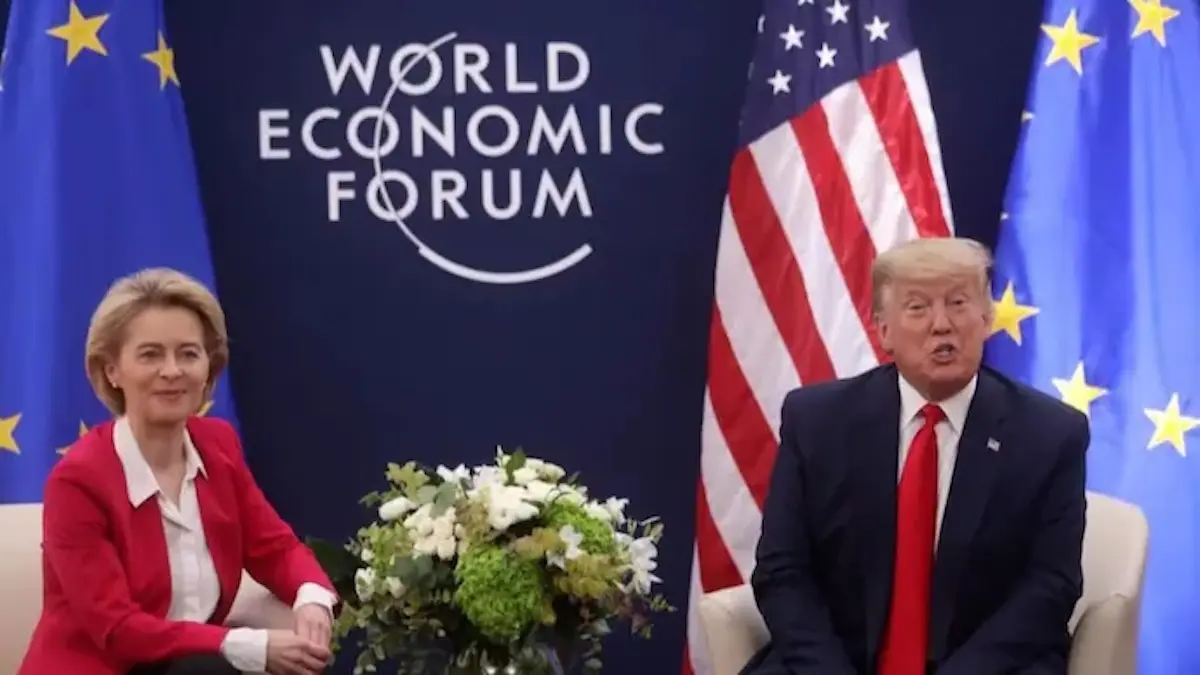Tariffs or the new vassalage to Donald Trump

Anticipating that Brussels will adopt appropriate and proportionate retaliatory measures, Trump threatens in the same letter to add to this 30% an additional tax that he himself will determine in each case.
Barely six months into his second term, Trump has destroyed much of the sense of solidarity between the two sides of the Atlantic.
While it is true that Europeans have become overly fond of regulation, erecting legal barriers that hinder trade and entrepreneurial freedom, it is no less true that the so-called transatlantic link was an alliance of interests, but also a cultural and civilizational alliance between great allies, which formed a bloc that was, if not indestructible, at least feared and powerful in the tumultuous international arena.
In his eagerness to be the most American among Americans, Trump seems determined to trade friendly relations and a firm alliance—always under the assumed and accepted leadership of the United States on the part of Europe—for something more akin to the vassalage of times past.
The main historical characteristic of conquerors throughout history, from the Egyptians and Persians to the last empires, in addition to the occasional spoils of war, was the imposition of often unbearable and unpayable taxes on the subjugated.
These taxes spurred the greatness of the metropolises and financed their wars, their scientific and industrial progress, and even the excesses of their leaders and supposedly relevant personalities.
The US president calls these quasi-neocolonial taxes tariffs, and as in the case of the ancient empires, their amount is based more on arbitrary and capricious decisions than on reasoned justification, often giving the collective “taxpayer” the feeling that they are suffering such fiscal punishment simply for not having taken pains to comply with the dictates of the empire's overseer.
It is a curious coincidence that Trump announced the new tariffs on the EU and Mexico at the same time, the latter under the guise of not having been sufficiently diligent in the fight against drug trafficking.
Mexico, and more specifically the Aztec Empire (1345-1521), was at that time a living example of the subjugation of the peoples it conquered through compulsory taxation.
For researchers, it is a feast to delve into the archives of the Matrícula de Tributos, a colorful register full of pictograms showing exactly how many jaguar skins, precious stones, corn, cocoa, rubber balls, gold ingots, honey, and textiles were collected by the government of the Triple Alliance (Texcoco, Tlacopan, and Mexico-Tenochtitlán) each tax season.
It also helps explain why the Tlaxcaltecs and Totonacs, among other indigenous peoples, allied themselves with Hernán Cortés to shake off that colonial domination, which also included the capture of warriors and maidens for human sacrifice.
Trump has no qualms about using his most crude and vulgar language to threaten those who until yesterday were considered allies and friends, treating them like trash and feeding their inferiority complex.
It remains to be seen how deep this contempt runs among the American people, who are largely descended from European immigrants and therefore the living embodiment of the three pillars of civilization embodied in the three beacon cities of the civilization that came to be known as “Western”: Jerusalem, Athens, and Rome.
In concrete terms, it is clear that the best thing for the United States and the European Union is that there should be no tariffs of any kind or amount between them, and that if there are any, they should be purely symbolic.
It remains to be seen whether these confiscatory tariffs will contribute decisively to the United States further boosting its prosperity.
As for Europe, despite the fact that quite a few countries may be tempted to save themselves at the cost of breaking the unity of the Group of 27, any minimally lucid mind knows that simply complying with Trump's punitive imposition will in no way enable Europe to make up the ground it is losing to the world's leading powers: the United States and China.
It is therefore likely that European leaders will understand that it is in their interest to diversify their markets, accelerate the entry into force of major agreements, such as the one concluded with Mercosur, and explore and spur other areas of development.
It will be very difficult to achieve the volume of US-EU trade (US$1.7 trillion in 2024) with other partners. But what Trump and his hawks cannot expect is for Europe to sit idly by. And in this search for alternatives, when the strongest leaves you with no way out, there is a risk of being forced into inconvenient arms.


